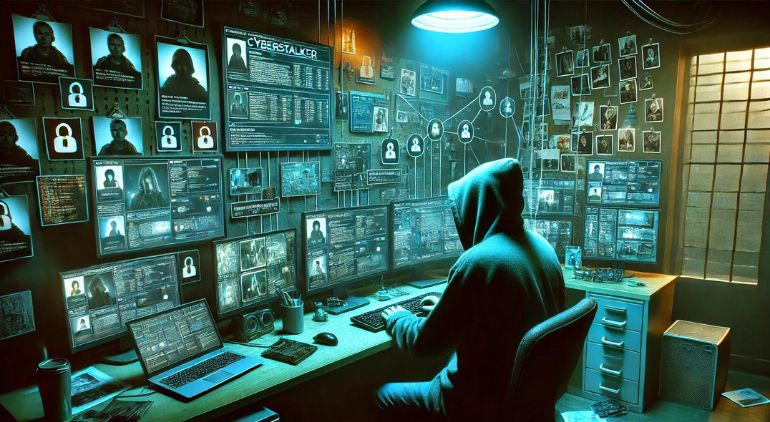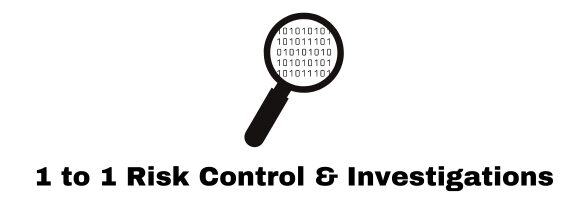405-458-5710
Confidentiality Guaranteed
405-458-5710
Confidentiality Guaranteed
You are Reading:
-
1 to 1 Risk Control & Investigations > Blog > Cyber-Stalking > Understanding and Addressing Cyberstalking

Jul
Understanding and Addressing Cyberstalking
Cyberstalking is a form of online harassment where someone uses the internet to repeatedly contact, threaten, or otherwise target another person. It can be difficult to identify because it often occurs through various platforms and may involve multiple accounts. Typical signs include repeated unwanted communications, social media interactions, hacking attempts, and public shaming or threats.
Documenting the Evidence If you suspect you’re being cyberstalked, start by documenting every incident. Take screenshots, save emails, messages, and any other relevant information. This documentation can be crucial if you need to involve law enforcement or pursue legal action. Ensure your evidence is time-stamped and organized to present a clear timeline of events.
Strengthening Online Security: Protecting your online presence is essential when dealing with a cyberstalker. Change your passwords regularly and use strong, unique passwords for each account. Enable two-factor authentication wherever possible. Review your privacy settings on social media to control who can see your information and posts. Avoid sharing personal information publicly.
Limiting Digital Footprint: Reduce the amount of personal information available about you online. This includes removing unnecessary information from social media profiles and other online platforms. Be cautious about what you share, even with friends, as cyberstalkers can sometimes gain information through mutual connections.
Seeking Support: Cyberstalking can be emotionally draining and isolating. It’s important to seek support from friends, family, or professional counselors. There are also organizations and hotlines dedicated to helping victims of stalking and harassment. Don’t hesitate to reach out for help and share your experiences with trusted individuals.
Reporting to Authorities: If the cyberstalking persists, consider reporting it to the authorities. Provide them with all the evidence you have gathered. Different jurisdictions have varying laws regarding cyberstalking, but many countries take this issue seriously and have measures in place to protect victims.
Engaging Legal Services: In severe cases, you may need to engage legal services to obtain restraining orders or take other legal actions against your cyberstalker. Lawyers specializing in cybercrimes can provide guidance on the best course of action and help you navigate the legal system effectively.
Maintaining Mental Health: Dealing with cyberstalking can take a toll on your mental health. It’s essential to prioritize self-care and seek professional mental health support if needed. Practices such as mindfulness, meditation, and regular physical activity can help manage stress and anxiety related to cyberstalking.
Educating Others: Raise awareness about cyberstalking by sharing your experiences and knowledge. Educating others can help prevent cyberstalking and support those who might be dealing with similar issues. Advocate for stronger online safety measures and support networks within your community.
Using Technology Wisely: Utilize technology to your advantage. There are various apps and tools designed to enhance online security and help manage cyberstalking incidents. Familiarize yourself with these resources and integrate them into your daily online activities to enhance your safety and security.
Staying Informed: Cyberstalking tactics and technologies evolve rapidly. Stay informed about the latest trends and best practices in online safety. Regularly update your knowledge and adapt your strategies to ensure you remain protected against cyberstalking threats.
Cyberstalking is a serious issue that requires proactive measures to address. By recognizing the signs, strengthening your online security, seeking support, and involving authorities when necessary, you can protect yourself from cyberstalkers. Remember, maintaining your mental health and educating others are also critical components in combating cyberstalking. Stay informed and utilize technology wisely to enhance your online safety.
- AI
- Bug Sweeps
- Car Security
- Cyber Crime
- Cyber-Stalking
- Digital Forensics
- Fraud
- Geo-Political
- GPS Tracking
- Hidden Cameras
- Identity Theft
- Investigations
- Misinformation
- Mobile Device Forensics
- Mobile Device Security
- Operational Security
- Privacy
- Psychology
- Situational Awareness
- Social Media Investigations
- Stalking
- Surveillance
- Uncategorized
